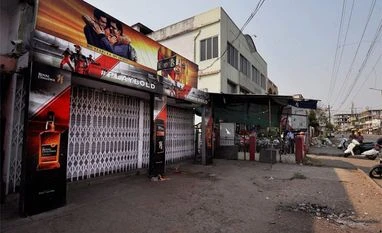States are thinking of converting stretches of state highways into urban roads as a way to get around the Supreme Court (SC) ban on liquor sales near the highways.
But if they want parts of national highways to be denotified, they will have to pay for operating and maintaining those stretches.
“If the states approach the central government for denotifying national highways, they would have to bear the cost of maintaining such roads. With the urban traffic increasing, the cost of maintaining them is very high and can dent the states’ finances,” an expert said.
At present, the Ministry of Roads, Transport and Highways does not have a policy on denotifying national highways. The expert said the court order sent wrong signals to the hospitality industry and international investors who have put their money in properties on national highways.
According to reports, DLF Cyber Hub, a premium food centre in Gurgaon along the National Highway 8, has changed the entry point for customers in a bid to skirt the SC order, which forbids the sale of alcohol within 500 metres of national and state highways from April 1. According to sources, the proposal of the ministry was to close down liquor shops that abutted on the highways and not necessarily all of those within 500 metres of a highway.
“States are free to denotify their state highways into urban roads but if they want to do the same for a national highway they have to approach the central government,” the expert said. The National Highways Act, 1956, states that the central government can declare any highway a national highway. The only requirement is that the road should be touching more than one state.
Last week, industry bodies in states such as Kerala, Punjab, Tamil Nadu and Telangana approached the SC, seeking a modification of its earlier order. Some of them asked the court to extend the time for shifting liquor shops till the expiry of their licence period.
More From This Section
Among those that approached the court was the All Assam Indian Made Foreign Liquor Retailers’ Association. It said that with the enforcement of the order, virtually all liquor shops would be banned in the state because the definition of state highways in the local statute included all roads.
The apex court, in its December 15, 2016, order, banned liquor shops along all highways and made it clear that the licences would not be renewed after March 31.
)